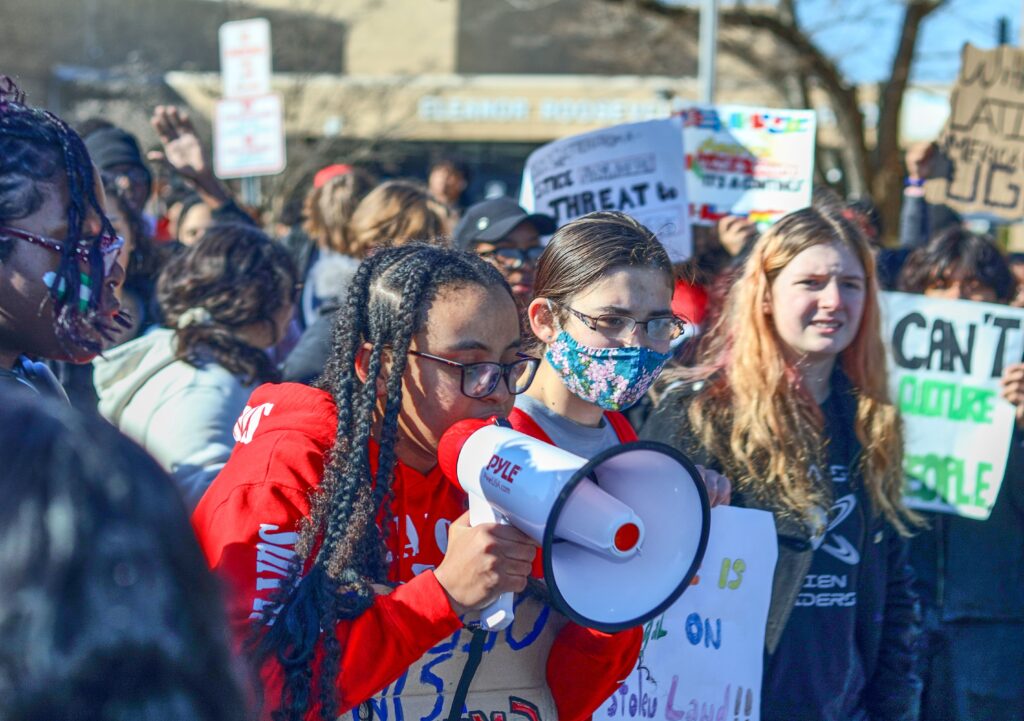On January 20, President Donald Trump announced the future suspension of the U.S. Refugee Admissions Program (USRAP) for an initial period of 90 days due to the country’s inability to “absorb large numbers of migrants, and in particular, refugees, into its communities in a manner that does not compromise the availability of resources for Americans, that protects their safety and security and that ensures the appropriate assimilation of refugees,” according to a press release on the White House website. The administration also halted Department of State funded services to recently resettled refugees.
“We expected for the Refugee Admissions program to stop or slow down significantly,” said Melina Roche, director of Communications and Government Relations for Lutheran Social Services of the National Capital Area (LSSNCA), which has a headquarters in Greenbelt. “What we didn’t expect is the work that we had been contracted for and funds had been appropriated for, to all of a sudden, overnight, be turned off.” A statement from the organization in January said, “The stop work order abruptly ends critical wraparound support LSSNCA had planned to provide refugees who arrived with legal status as recently as two weeks ago.”
Greenbelt Office
LSSNCA’s Greenbelt office is on the 12th floor of a Greenway Center office building. Inside there are still cheerful staff, a cozy waiting area with some playful elements for children, a bulletin board full of flyers advertising assistance with an array of things ranging from social security numbers and work authorization to enrolling children in schools, TB tests, English classes, WIC and even clothing. Though it’s welcoming inside, a note taped to the door reminds people to keep it locked.
Aid to Refugees
The LSSNCA was one of several refugee welcome agencies that were impacted by the suspension of USRAP. The organization started in 1917 and works throughout the region in Washington, D.C., Virginia and Maryland, according to their website. The group provides a range of services starting with the reception of refugees at the airport, Hirut Gebretsadik, communication manager for LSSNCA, told the News Review. The case managers assigned to welcome those refugees continue to help them find jobs, homes, pay rent and sign their children up for local schools throughout their first 90 days in the country. In addition to those services, LSSNCA also helps with wellness and legal services and pairs minors traveling alone with host families through the D.C. foster care system. The organization welcomed over 550 refugees through their Greenbelt office and helped over 4,000 refugees in total during its 2024 fiscal year. In the span of time between October 2024 through the suspension date (January 24, 2025) the organization welcomed over 300 refugees through the Greenbelt office, according to Gebretsadik.
Cuts and Layoffs
The capacity for aid dwindled when the freeze caused the organization to lay off 65 of its case workers. “You have refugees sitting, [they] just entered the United States, they know that they’re promised certain services, but then we don’t have case managers to be handling those, to be providing those services,” said Gebretsadik.
The turmoil caused an abundance of confusion for refugees in the country, Gebretsadik said. Some even contemplated returning to their home country despite the great risk of returning. “It was an extremely dark time,” she said. Throughout the “dark time” the organization powered through, thanks to the flexibility of its own employees and contributions from the community around them.
Coping
Once the organization communicated its struggles to the public, individuals and families came forward in bunches to ask how they could help, said Gebretsadik. Volunteers quickly became the lifeblood of the organization by donating time, money and even food to the cause. Other volunteers became case managers ‒ following a training course ‒ replacing those that were laid off due to the lack of funding. Roles within the organization also shifted. Gebretsadik went above and beyond in her role as communication manager, talking with refugees regularly when their case managers just disappeared, almost acting as a case manager herself.
“Positions were rearranged.” said Roche. “… With those shifts we were able to, for the most part, keep operations going as best as we could.” Roche added that the restructuring of the
organizational depth chart required a ton of communication internally to make sure everyone understood what was happening at any given moment.
Due to LSSNCA’s ability to adapt and the influx of volunteers ready to help in any capacity, the organization is weathering the storm and continuing services as best they can. On April 20, the initial 90-day reassessment period mentioned in the press release ended, which is when a report from U.S. Secretary of Homeland Security Kristi Noem and Secretary of State Marco Rubio on USRAP status was to be sent to the President for him to consider the resumption of the program. According to an article by Forbes published on April 28, there has been no public announcement on whether the report was sent to the President or what information it contained.
Roche is hoping that the report means she and her organization can return to helping refugees in the capacity they did before January 24 when the stop work order was officially issued.
“I think this is my eternal optimism coming through,” she said. “I would love for it to be a ‘we looked at the structures, at the process and we believe that we can resume.’”
Ryan Colasanti is a student at the Philip Merrill College of Journalism interning with the Greenbelt News Review.



